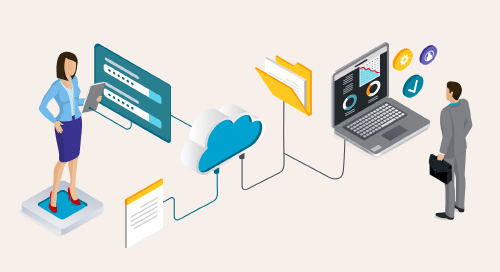Modern approaches to business-to-business (B2B) integration have evolved beyond traditional electronic data interchange (EDI) to embrace API connectivity with access to real-time data. At the same time, you have new options to run B2B processes in the cloud, gain agility and scalability, and reduce IT overhead.
To capture these benefits, you need a modern, flexible B2B infrastructure that can adapt quickly to business, technology, and economic changes. Follow these six steps to modernize critical B2B operations for greater business agility and supply chain resilience, stay compliant with evolving regulations, and improve responsiveness to customers and partners — now and in the future.
01 Take a platform approach
Running either on-premises or in the cloud, a B2B integration platform provides visibility and control for all data connections between your organization and the systems of your customers, suppliers, regulations, and other business partners. You gain a flexible, efficient way to interact across your business, supply chain, and trading community with a single B2B integration solution.
02 Expand your use of APIs
Integrating EDI processes with APIs gives you access to real-time data, top-line security, and faster ways for stakeholders to get the information they need to make decisions. With a modern B2B integration platform, you can leverage APIs to create innovative solutions for partner onboarding and partner management, document tracking and chatbots, DevOps and configurations tools, ERP integration, and more.
03 Strengthen supply chain resilience
Open, agile B2B integration solutions give you the resilience needed to respond quickly to supply chain disruptions caused by market, macro-economic, and business changes. Onboard new partners faster, change supply chain flows quickly, gain deeper visibility into EDI flows, and use advanced analytics to predict and head-off supply chain disruptions.
04 Handle compliance as integration
Every day, businesses around the world face new market regulations bearing on B2B communication. Stay compliant, now and in the future, with B2B integration solutions specialized for handling compliance data for import control, drug serialization and traceability, controlled substance ordering, and more.
05 Converge with the cloud
Connecting EDI with APIs in a cloud platform creates opportunities to scale up parts of the business, reduce costs, strengthen security, tap into available expertise, and make your entire system more agile and flexible. Tight API integration between B2B processes and SAP S/4HANA and other cloud-ERPs can ensure a seamless flow of data between your internal and partner-facing systems, resulting in faster order processing, reduced lead times, and quicker order-to-cash conversion.
06 Stay open to emerging technologies
Look for a B2B integration platform with modern, flexible architecture open to emerging technologies like integration platform as a service (iPaaS), artificial intelligence (AI) and machine learning (ML). These technologies promise a future of even greater benefits, including process automation that eliminates human involvement in tedious, manual tasks, and higher levels of business intelligence based on advanced analytics.
Need to keep pace with B2B transformation?




